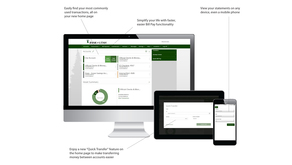As we shared in November, Bank of Utah is seeing a rise in fraudulent activity this holiday season, with criminals impersonating representatives of major online retailers, such as Amazon, Walmart and Target, and contacting consumers claiming to “resolve problems” with their accounts. These criminals have one purpose: to con others into handing over personal information.
The newest strain of this type of fraud targets users of Venmo – a mobile app that can be used to send and receive cash digitally. The scam is being seen across Utah.
Similar to the experience of the retailer fraud, scammers are now also impersonating representatives of “Venmo Support” and calling customers to tell them their accounts are being hacked. Once users verify important information, usually via an email, the hackers deplete the funds in their Venmo accounts.
With any of these situations, if you receive a phone call from “Support,” hang up. Call Venmo or the retailer directly, using a phone number from the official website – not an ad or an email – to report the call and ensure your account has not been compromised.
Additionally, if you receive suspicious texts, emails or phone calls asking for any of the following information from retailers, Venmo or a financial institution, delete the text, trash the email or end the call:
- Account number
- Username or password
- Social security number
- PIN number
- Birthday
- The answers to your security questions
- A one-time code
- Address
- Remote access to your computer
Again, if you’re concerned there is truly a problem with your account, contact the retailer or Venmo directly using a phone number from the retailer’s official website.
For Bank of Utah customers, Zelle® is available to send and receive cash digitally to friends and family. Unlike Venmo, money travels directly between bank accounts and, because it’s located securely within online banking and the Bank of Utah mobile app, your information is protected with the same technology that keeps your bank account safe. When using Zelle, make sure you are sending money to people you know because, once you hit “send,” the money is removed from your account. You should also avoid using Zelle to purchase items from online bidding and sales sites, as those are potentially high-risk transactions. If you have any questions on your Zelle activity, please call us at 801-409-5000.
If you suspect you’ve been scammed, call Bank of Utah and your other financial institutions immediately. It’s always better to be safe than sorry.
You should also report the fraudulent activity to:
The Federal Trade Commission
The Better Business Bureau
State Consumer Protection Office




